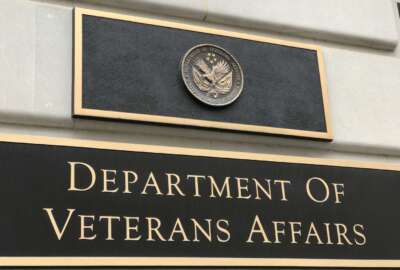VA, House lawmakers spar over veteran-owned contracting program
The department must decide by Dec. 15 whether or not it will follow GAO\'s recommendations after losing a bid protest decision. VA tries to explain why service-...
wfedstaff | June 4, 2015 2:35 pm
The Veterans Affairs Department is on the defensive on its decision on how it is applying a 2006 law.
VA is interpreting a provision in the 2006 Veterans Benefits, Health Care and IT Act to give service disabled veteran-owned firms and veteran-owned small businesses the highest priority only when it comes to contracting within set-aside programs. The department is not giving these firms priority in other types of contracting, such as full and open or through schedules. And it’s that decision that is getting VA in hot water with Congress.
Both the Government Accountability Office and House lawmakers strongly disagree with VA’s interpretation. In fact, GAO ruled against the agency in October on this issue.
In that case, a service-disabled veteran-owned business (SDVOB), Aldevra, challenged VA’s award through the General Service Administration’s Federal Supply Schedule for office furniture to a non-SDVOB. Aldevra contends the law requires VA to set aside the contract for service disabled or veteran-owned small businesses (VOSBs) because there were at least two companies capable of doing the work at a reasonable cost.
GAO sustained Aldevra’s protest.
And at a hearing Wednesday, VA came under more scrutiny for its decision not to follow GAO’s recommendations to rebid the contract as a set aside.
“The VA has made it clear in correspondence and meetings following the Aldevra decision that it has no intention of attempting to clear up its own questions about veterans first,” said Rep. Bill Johnson (R-Ohio), chairman of the Veterans Affairs Subcommittee on Oversight and Investigations. “Despite acknowledging a problem, the VA is not trying to solve the problem, nor did it even ask Congress or this committee those questions that needed to be answered years ago. Even after the Aldevra decision and the VA’s response, efforts by these two subcommittees to help explain parts of the law that the VA had trouble understanding — several years after its passage — were met with a lack of cooperation on the VA’s part.”
Decision time coming
VA has until Dec. 15 to tell GAO how it will move forward with the contract.
“The principal reason VA attorneys are not persuaded by GAO’s Aldevra decision is because it doesn’t contain analysis of all the words of that statue,” said VA’s deputy general counsel Jack Johnson during the hearing. “The set-aside law provides that for purposes of meeting the Secretary’s annual goals for contracting with VOSBs and SDVOSBs, the department shall set aside contracts for them if certain conditions are met.”
And Thompson quickly pointed to VA’s success in contracting with service-disabled and veteran-owned small firms. In 2011, VA awarded 19 percent of its contracts to service-disabled veteran-owned small businesses and 22 percent of its contracts to small veteran owned businesses. Of that 22 percent, VA counts the 19 percent in that overall number. But that still is significantly more than most agencies, which are below five percent in this category.
The government missed the goal of 3 percent in 2010, awarding 2.5 percent of all contracts to SDVOSBs. The data for 2011 is not available government-wide.
Thompson said VA’s accomplishments show it is meeting both the letter and spirit of the law.
Disagreement over the law
But Johnson and other committee members vehemently disagreed.
Johnson said there were at least three different times between 2008 and 2010 that VA officials testified or in official agency documents listed service disabled and veteran owned small businesses as the highest priority for all acquisitions.
“Where in the priority scheme do VSOBs and SDVOBs fall?” Johnson asked Leney. “You said there is a priority and a hierarchy. Putting them in open source, which is the eighth category down, is not putting is not first and second as previously identified in VA acknowledgement of Title 38 requirement. So, a straight forward answer, where do they fall?”
Leney said he is not the person to answer that question, which frustrated Johnson even more.
“We started asking these questions 30 days ago, and we were told the people appearing before this subcommittee today would be able to answer these specific questions,” Johnson said.
Thompson said service disabled and small veteran owned businesses are the highest priority within VA set-asides.
But that didn’t give Johnson the answer he was looking for either. He said the law doesn’t specifically call out set asides, but the “contracting acquisition process.”
Thompson disagreed with the committee’s interpretation.
“VA has always been of the opinion that the correct interpretation of those veterans first provisions is that within all set-asides service disabled veteran owned businesses stay on top,” he said.
That answer only drew more ire from Johnson.
“That is contrary to what the GAO says,” he said. “Where are you getting your authorization? Where in the law does it say it’s based on set-asides and not the overall contracting requirements and provisions? Give me a reference?”
Thompson said GAO’s and the committee’s analysis missed a key point of the law.
“Congress did not say, I respectfully disagree that Congress said, we are to use a set aside authority in all cases but rather as a tool for meeting the Secretary’s goals. GAO’s opinion did not discuss this important qualifier that Congress placed on this set-aside authority that is it was to be used to meet the Secretary’s goals,” he said.
The meaning of “shall”
In the second panel, GAO testified about bid protest decision.
Ralph White, GAO’s managing associate general counsel for procurement law, said the agency looked at the plain meaning of the statue, which led them to conclude “Congress used the word ‘shall,’ didn’t include an exceptions and we could not see nor did the VA provide any explanation of how they could go elsewhere.”
Johnson said after the hearing he didn’t know why VA’s interpretation is misguided.
“The way I read the law and the statements made by the VA previously, it doesn’t talk about priority within those set asides,” he said. “It talks about priority within the Veterans [Affairs] acquisition requirements. So that is where I think some of the concerns are.”
While VA and lawmakers disagreed over the priority of VOSBs and SDVOBs, the agency provided with committee with a progress report on fixing other areas of their contracting program.
GAO and VA both highlighted measurable progress.
Leney said VA removed all non-verified companies from the Vendor Information Pages (VIP)-the database that agency contracting officers use to find certified VOSBs or SDVOBs-three months ahead of schedule.
VA reduced the time it takes to verify a company to 75 days from 127 days in June.
And veterans now have the ability to submit their entire application online, and once they do, VA notifies them of their progress in every step of the way.
GAO’s Greg Kutz, the director of forensic audits and investigative service, said all of the 13 recommendations it made to VA to fix the certification program have been made or are underway.
Kutz said there still are three areas VA should focus on:
- Human capital. VA needs to make sure their staff is trained to ensure the program maintains integrity.
- Performing more unannounced site visits of service disabled and veteran owned small firms. VA should use these as part of application process and reverification process.
- Be more aggressive in using suspension and debarment to make sure bad actors have consequences.
RELATED STORIES:
Senators call for probe into veteran-owned contracting VA sets rules for set-aside program
Agencies can say no to GAO recs
Copyright © 2024 Federal News Network. All rights reserved. This website is not intended for users located within the European Economic Area.
Jason Miller is executive editor of Federal News Network and directs news coverage on the people, policy and programs of the federal government.
Follow @jmillerWFED






